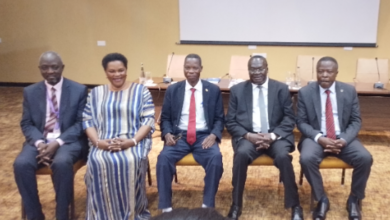Civil Servants vs. Uganda Government: A Policy Debate
Is banning civil servants from business a well-thought-out policy or a rushed decision based on isolated concerns?

Op-Ed: In 1997, Uganda embarked on a path to liberalize its economy, embracing a private-sector-led growth model. This shift saw the privatization of various government institutions and corporations to enhance business efficiency.
In support of this transition, the government introduced the Youth Entrepreneurship Scheme (YES) to train and facilitate young entrepreneurs, creating employment opportunities beyond the limited capacity of government institutions.
The YES program played a crucial role in empowering graduates to establish businesses rather than relying solely on government employment. However, its impact extended beyond fresh graduates, benefiting existing businesses, potential entrepreneurs, and even civil servants.
Under the guidance of Enterprise Uganda, led by Mr. Ocici, capacity-building initiatives targeted women entrepreneurs, youth, and start-ups. The Uganda Manufacturers Association (UMA), in collaboration with UNDP and the Private Sector Development Program, further strengthened businesses to enhance competitiveness, value addition, and export expansion.
Uganda is now recognized as one of Africa’s leading entrepreneurial nations, with a high rate of business formalization. Unfortunately, many businesses struggle to survive beyond their first five years due to challenges such as high interest rates, excessive taxation, and inefficient logistics.
Given the government’s limitations in providing sufficient jobs, the private sector has become the primary employment driver, with agriculture alone employing nearly 80% of the population, particularly women. Many civil servants also engage in business, raising the question: Should the government restrict them from doing so?
Key concerns include:
- Are civil servants neglecting their official duties due to private business engagements?
- Has the government conducted thorough research to determine whether civil servants’ businesses negatively impact service delivery?
- Is banning civil servants from business a well-thought-out policy or a rushed decision based on isolated concerns?
Addressing the Real Issue: Corruption and Inefficiency
The focus should not be on preventing civil servants from engaging in business but rather on curbing corruption and improving accountability in government institutions. Recent reports from the Inspectorate of Government (IGG) indicate that 80% of government jobs are acquired through corruption and nepotism. Instead of restricting civil servants from business ownership, the government should:
- Enforce stricter anti-corruption measures.
- Improve human resource management in MDAs (Ministries, Departments, and Agencies).
- Implement performance-based contracts to enhance efficiency.
A Balanced Approach
Many civil servants invest in businesses that create employment opportunities, such as schools, health centers, agribusinesses, and transport services (e.g., boda bodas). Should such individuals be penalized for contributing to national development? If corruption is the real concern, then sacking corrupt officials and replacing them with qualified, patriotic Ugandans would be a more effective solution than blanket restrictions on business ownership.
Rather than alienating civil servants from entrepreneurship, policymakers should focus on solving the root issues of corruption and inefficiency in government institutions.
Uganda’s policy framework should aim to create an enabling business environment for all while ensuring that public servants fulfill their official duties effectively. The goal should be transformation through well-structured policies, not the creation of additional economic barriers.
The author is Richard Andama, Former Resident District Commissioner (RDC) Chairman, National Former RDCs, RCCs, and Deputies Association
Disclaimer: As UG Reports Media LTD, we welcome any opinion from anyone if it’s constructive for the development of Uganda. All the expressions and opinions in this write-up are not those of UG Reports Media Ltd. but of the author of the article.
Would you like to share your opinion with us? Please send it to this email: theugreports@gmail.com.






